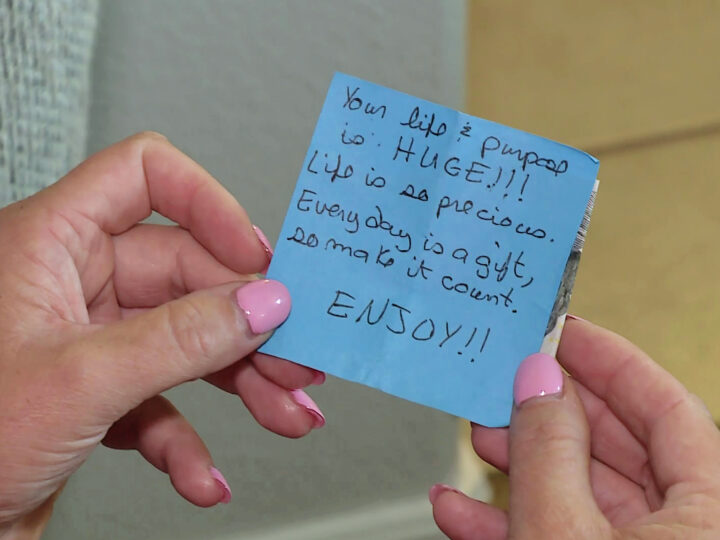
A Mother’s Voice
We can use our voices to express love by telling others that we love them. However, even as infants before we’ve learned to speak we know that love has a particular sound, and it’s the sound of our mother’s voice.
Science has known for decades that soon after birth, an infant can identify its mother‘s voice. One study found that when a recording of their mothers’ voices was played to prematurely born infants, their oral feeding skills improved, which led to a shorter hospital stay.1 Other research has shown that the sound of a mother’s voice not only soothes the child, but reduces cortisol levels and increases oxytocin, the “love” or bonding hormone.2
It’s clear that newborns recognize and prefer their mother’s voice just from the way they smile and become animated when hearing it. While researchers knew this ability was in place from birth, what they didn’t know until relatively recently was that babies can recognize their mother’s voice and differentiate it from others while still in the womb.
Babies in utero can hear their mother’s voice and all the ambient sounds around her during the last 2.5 months of pregnancy. During this time, babies can clearly distinguish their mother’s voice from other people.

A study performed in China and later in Canada recorded expectant mothers reading a poem, after which they were divided into two groups. Half the in utero babies had their own mother’s recording played back to them while the other half heard the recording of a different mother.
Hearing the recording caused a change in heart rate for all the babies. The heart rate accelerated for the babies who heard their own mother’s voice. Clearly, they were excited by it. In contrast, the heart rate decelerated for the babies hearing a different mother’s voice. Researchers called this deceleration an “attention mechanism” because when the baby heard an unfamiliar voice, the heart slowed down in an attempt to pay closer attention and figure out who was talking. In both cases, the evidence showed that the babies noticed the voices and could tell one from another.3
Because babies in the womb are constantly hearing their mother’s voice, research shows they can immediately distinguish between the sound of their native language and a foreign language at birth. In one study, a pacifier was wired to a computer that measured the babies’ biomarkers and reaction to hearing both languages. The study was performed in multiple countries and each time the babies’ sucking pace was longer and slower while hearing the foreign language than for their native language.4 This shows mothers are their babies’ first language teachers, and that infants can differentiate between sounds heard in utero.
Without a doubt, babies can hear while still in the womb, so take every opportunity to talk to your baby starting in the 10th week of pregnancy. Tell him or her how excited you are for their arrival and all the wonderful things you have planned as they grow. Sing to your baby or read stories. It doesn’t matter how you do it; just keep talking. Your baby is waiting to hear from you because he or she already loves you, and your voice is the sound that they are loved, too.
SOURCES
1Chorna, O. D., & Slaughter, J. C. (2014). A pacifier-activated music player with mother’s voice improves oral feeding in preterm infants. PEDIATRICS, 133(3), 462-468. doi:10.1542/peds.2013-2547.
2Thompson, L. A., & Trevathan, W. R. (2009). Cortisol reactivity, maternal sensitivity, and infant preference for mother’s familiar face and rhyme in 6‐month‐old infants. Journal of Reproductive and Infant Psychology, 27(2), 143-167. doi:10.1080/02646830801918463.
3Kisilevsky, B. S., & Hains, S. M. (2003). Effects of experience on fetal voice recognition. Psychological Science, 14(3), 220-224. doi:10.1111/1467-9280.02435.
4Moon, C., & Lagercrantz, H. (2013). Language experienced in utero affects vowel perception after birth: A two-country study. Acta Paediatrica, 102(2), 156-160. doi:10.1111/apa.12098.
JOIN THE MOVEMENT
Subscribe to our newsletter and receive inspirational stories delivered to your inbox that spread love, updates on our movement, and notifications on upcoming deals & events.




